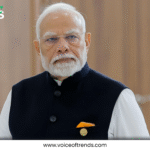Pakistan’s tech industry is rapidly evolving, establishing the nation as a growing center for innovation, digital progress, and economic development. With a young, tech-savvy population, supportive government policies, and growing global recognition, Pakistan is leveraging technology to address socio-economic challenges and compete globally. This blog explores the current state of technology in Pakistan, recent developments, and the path forward.
Table of Contents
ToggleA Thriving IT Industry
Pakistan’s IT sector has become a cornerstone of its economy, contributing significantly to GDP growth and job creation. The industry generates over $3 billion annually, with software exports worth over $1 billion. The country ranks as the third-largest exporter of IT-enabled services, powered by a workforce of over 300,000 skilled professionals. Cities like Karachi, Lahore, and Islamabad have emerged as vibrant IT hubs, hosting startups, incubators, and tech parks that foster innovation.
The government has played a key role in this growth. The Ministry of Information Technology and Telecommunication (MoITT) has prioritized digital transformation through initiatives such as the Digital Nation Pakistan Bill 2025. The legislation aims to revolutionize the economy, governance, and society by promoting digital infrastructure and skill development.
Digital Infrastructure and Connectivity
By 2025, the country will have over 200 million telecom subscribers, including 150 million broadband subscribers and over 2 million fiber-to-the-home (FTTH) connections. The expected rollout of 5G services by mid-2025 is set to further enhance connectivity, enable faster internet speeds, and support advanced technologies such as the Internet of Things (IoT) and artificial intelligence (AI).
The computerized National Identity Card (CNIC) empowers citizens across the country, facilitating seamless access to services such as banking, social security, and e-governance.
Government Initiatives and Policies
The Pakistani government has launched several initiatives to strengthen the tech ecosystem. The Special Technology Zones Authority (STZA) is a flagship program aimed at creating high-tech economic zones to attract foreign investment and develop a skilled workforce. These zones are expected to create thousands of jobs and increase IT exports to $50 billion annually by 2030.
The Digital Pakistan initiative, launched to increase connectivity and digital literacy, has democratized access to information and services. Programs such as the distribution of 100,000 laptops to high-performing students and zero-interest loans to digitize classrooms reflect the government’s commitment to promoting a knowledge-based economy.
Emerging Technologies and Innovation
Pakistan is embracing emerging technologies such as AI, blockchain and cloud computing. Institutions such as the National Center for Cyber Security (NCCS) and the National Aerospace and Technology Park (NASTP) are driving research and development in these areas. For example, recent collaboration with China has resulted in the establishment of Pakistan’s first interactive display manufacturing plant, a $12 million investment that highlights the country’s growing tech capabilities.
The Science and Technology for Economic Development (STED) program is another innovative initiative, which promotes public-private partnerships to develop high-value products in sectors such as biotechnology, pharmaceuticals and IT. These efforts are strengthening Pakistan’s industrial base and increasing its global competitiveness.
The Road Ahead
Pakistan’s technology sector is at a critical juncture, with the potential to become a global leader in innovation. By leveraging its young population, strategic policies, and international cooperation, the country can address socio-economic challenges and drive sustainable development. The government’s commitment to a merit-based system, as highlighted by the Science and Technology for Economic Development Program, will ensure that bright minds are nurtured and rewarded.
As Pakistan prepares for 5G and continues to invest in emerging technologies, the future looks promising. The country’s journey towards becoming a technology hub is not just about economic gains, but also about empowering communities, improving governance, and creating a brighter, more connected future for its 240 million citizens.




















